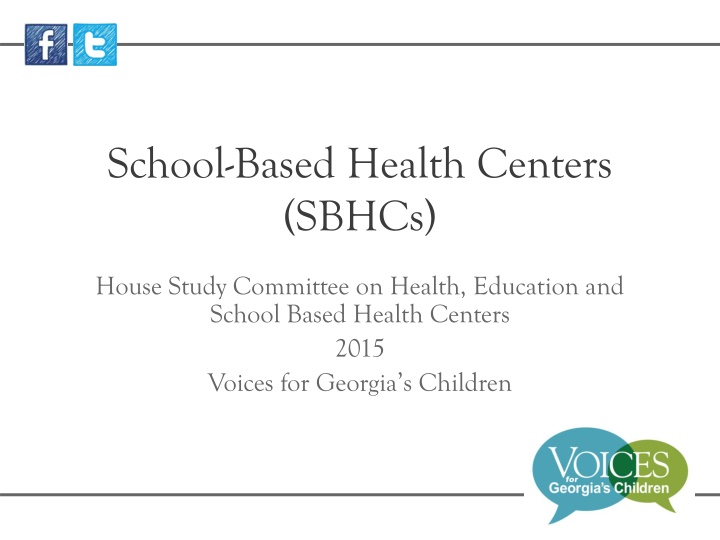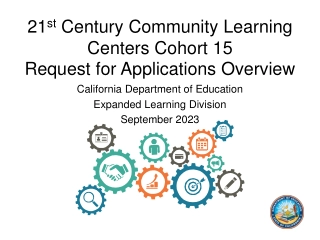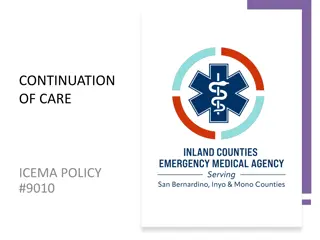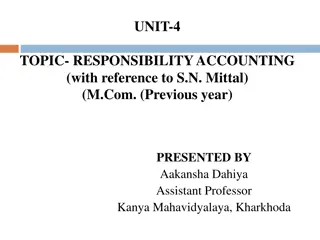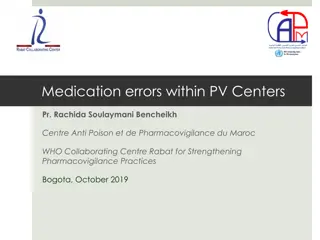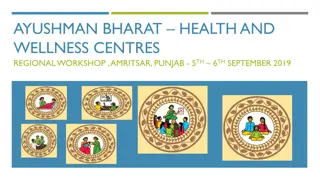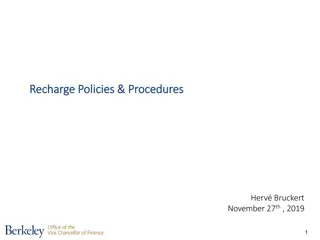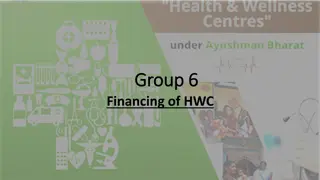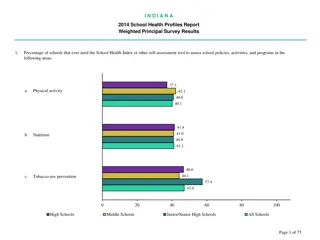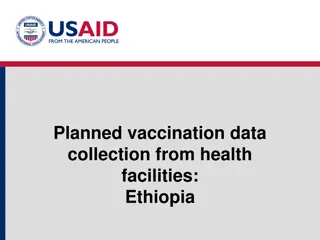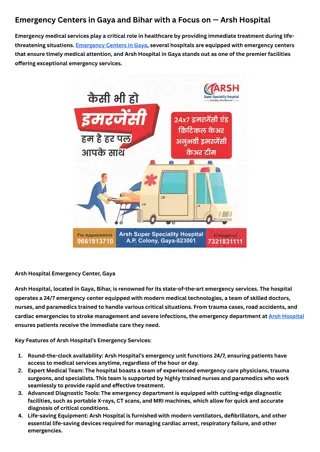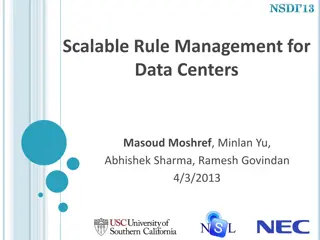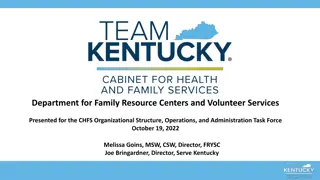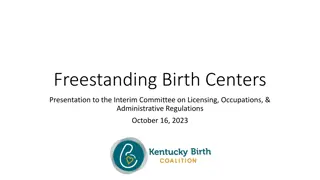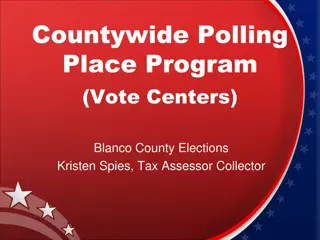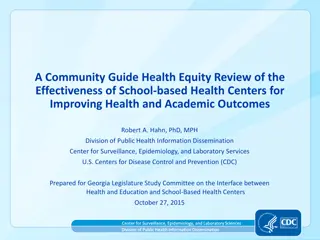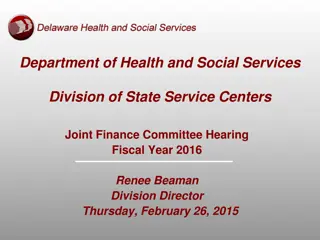School-Based Health Centers (SBHCs)
School-Based Health Centers (SBHCs) are primary care centers within schools that provide medical care, behavioral health, and psychosocial services to promote the health and educational success of school-aged children. Services include diagnosis and treatment of illnesses, wellness checks, mental health counseling, and referrals. Currently, there are 9 SBHCs in Georgia serving 5,000 students, staff, and families, with national scope extending to 2,000 centers in 44 states. Funding opportunities include Medicaid, CHIP, private insurance, and partnerships with community health organizations and foundations.
Download Presentation

Please find below an Image/Link to download the presentation.
The content on the website is provided AS IS for your information and personal use only. It may not be sold, licensed, or shared on other websites without obtaining consent from the author.If you encounter any issues during the download, it is possible that the publisher has removed the file from their server.
You are allowed to download the files provided on this website for personal or commercial use, subject to the condition that they are used lawfully. All files are the property of their respective owners.
The content on the website is provided AS IS for your information and personal use only. It may not be sold, licensed, or shared on other websites without obtaining consent from the author.
E N D
Presentation Transcript
Facebook_logo.gif Twitter_logo.gif School-Based Health Centers (SBHCs) House Study Committee on Health, Education and School Based Health Centers 2015 Voices for Georgia s Children Voices_Logo_Color.jpg
School-Based Health Centers Overview Need Outcomes Voices_Logo_Color.jpg 1
Overview of SBHCs Definition SBHCs are primary care centers within schools that blend medical care with behavioral health and psychosocial services in order to promote the health and educational success of school- aged children and adolescents Voices_Logo_Color.jpg 2
Overview of SBHCs Preventative, Routine, Acute and Monitoring Services Diagnosis and treatment of acute and chronic illness and minor injuries Asthma treatment and monitoring Wellness checks and routine physicals Health screenings (Early Periodic Screening Diagnosis & Treatment) Immunization and flu vaccines Mental and behavioral health counseling Parent and family counseling Specialist and community referrals Voices_Logo_Color.jpg 3
Overview of SBHCs Current Scope: National and Georgia 9 SBHCs in Georgia serving 5,000 students, staff and families; 63 tele-health sites (GPTH) 2,000 SBHCs in 44 states and the District of Columbia Whitefoord Community Program (2 SBHCs) Berrien County Med Clinic Ware County School System Tiger Creek Elementary Turner Elementary Lake Forest Elementary Johnson County Elementary North Clayton County High School Voices_Logo_Color.jpg 4
Overview of SBHCs Students, Families and the Community Benefit 60% 50.7% 37.4% 37.1% 40% 33.1% 18.9% 20% 0% Students from other schools Family of student users Faculty/school personnel Out-of-school youth Other community members Voices_Logo_Color.jpg 5
Overview of SBHCs Start Up and Sustainable Funding Opportunities 85% of SBHCs bill for visits nationally Medicaid, CHIP, private insurance, self-pay Associated administrative costs are billable Service Revenue 33% by community health organizations (Federally Qualified Health Centers) Most in Georgia are FQHC sponsored Sponsorships In-Kind support for operations from schools and hospitals State and National Foundations Partner Contributions State Funds & Government Grants 18 states have dedicated funds in their budget State, federal, and local grants Voices_Logo_Color.jpg 6
Need for SBHCs Child Health in Georgia Georgia ranks 42nd nationally in child well-being 52% have a medical home 65% had a medical or dental preventive care visit 53% with emotional, behavioral, or developmental problems received mental health care Voices_Logo_Color.jpg 7
Need for SBHCs Access to Healthcare in Georgia 44th in rate of uninsured children Nearly 200,000 children are uninsured in Georgia 63 counties have no pediatrician 6 have no family medicine physician 31 have no internal medicine physician 79 have no OB/GYN 39th in Doctors per 100,00 45th in access to mental health care 1:1,440 ratio of mental health worker to citizen 750 School Psychologists ratio of 1:2,475 (1:1,000) 620 School Social Workers ratio of 1:2,742(1:250) Voices_Logo_Color.jpg 8
Need for SBHCs Health Impacts Education Outcomes Approximately 320,000 students miss 10 days each year due to illness in Georgia For many children with a mental illness, that number can be as high as 18 to 22 days missed Asthma and Oral Health are the leading causes of absenteeism Absenteeism linked to being retained in 3rd grade Being retained in 3rd grade linked to not graduating Negative health effects are amplified for children living in poverty Voices_Logo_Color.jpg 9
Outcomes of SBHCs Health Decreased: Hospitalization due to asthma Inappropriate use of emergency departments Prescription Drug Use Increased: Use of primary care Use of peak flow meters and inhalers (for asthma) Use of mental health services Access to healthcare Voices_Logo_Color.jpg 10
Outcomes of SBHCs Educational Decreased: Tardiness Loss of seat time Increased: Attendance Lake Forest Site 50% of students referred to SBHC returned to class Perception of school engagement, expectations, and safety Grade Point Average Voices_Logo_Color.jpg 11
Outcomes of SBHCs Cost-Savings Reduction of Medicaid expenditures attributed to: Inpatient hospitalization, prescription drug, and emergency department use Whitefoord Site 50% reduction in Medicaid cost per child for those with access to SBHC Atlanta, GA Medicaid enrolled students had lower: Drug and emergency department expenses $898.98 vs. $2,360.46 in yearly expenses Voices_Logo_Color.jpg 12
Linking School-Based Access to the Larger Whole SBHCs Provide a Natural Link for Sustaining Child Health and Academic Outcomes Academic Success Improved Health Access to Healthcare Voices_Logo_Color.jpg 13
Voices_Logo_Color.jpg Thank You! For more info: Erica Fener Sitkoff Policy & Outreach Director efenersitkoff@georgiavoices.org Polly McKinney Advocacy Director pmckinney@georgiavoices.org www.georgiavoices.org Facebook_logo.gif Twitter_logo.gif
